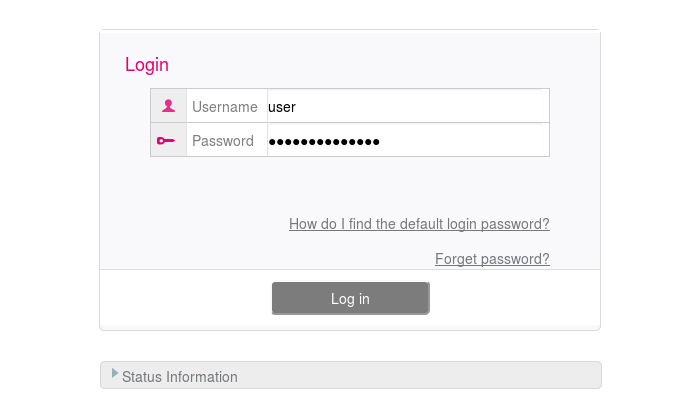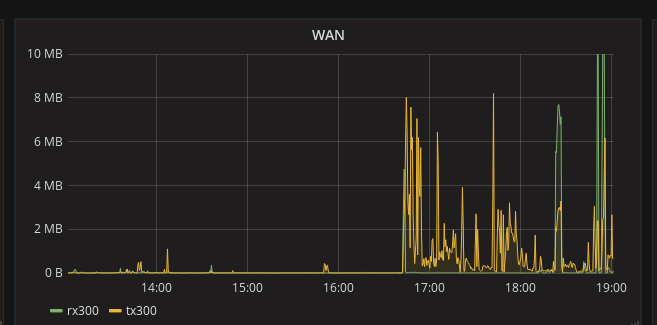Hacking the HG659
I want to have internet usage data from my router as it cannot be put in bridge mode. I currently use the services of T-Mobile (NL).
Investigating the data
These 'smart' people decided to do a POST that never returns. I guess that's to avoid people like me trying to get the data out of the browser easily with the dev tools.

I inspected the button and saw it is calling postData(). The relevant part of the function is below:
user_login.js
postData: function() {
this.content.set("UserName", $("#index_username").val());
this.content.set("Password", $("#password").val());
if (check_username_password_if_blank()) {
return 0
}
var a = utilGetCsrf();
var c = {
csrf: a,
data: utilGetJson(this.content)
};
$("#password").blur();
var b = this.content.get("UserName") + base64Encode(SHA256(this.content.get("Password"))) + a.csrf_param + a.csrf_token;
c.data["Password"] = SHA256(b);
this.post($.toJSON(c), function(d) {
# ....
}
}
cat_exember.js.jgz
function utilGetCsrf() {
if (g_csrf_obj){
return g_csrf_obj;
}
var csrf_obj = {};
var metas = document.getElementsByTagName("meta");
var m;
for(m = 0 ; m < metas.length; m++) {
if (metas[m].getAttribute('name') === 'csrf_param') {
csrf_obj.csrf_param = metas[m].getAttribute('content');
break;
}
}
for(m = 0 ; m < metas.length; m++){
if (metas[m].getAttribute('name') === 'csrf_token') {
csrf_obj.csrf_token = metas[m].getAttribute('content');
break;
}
}
return csrf_obj;
}
This router has some "security" measurements, all of the json outputs that this gives are surrounded by while(1);/* and */.
Rewriting
I rewrote this code in python
def _hash(user, password, csrf_param, csrf_token):
_pwd_hash = sha256(password.encode('utf-8')).hexdigest().encode('ascii')
_b64 = base64.b64encode(_pwd_hash).decode('ascii')
_b = user + _b64 + csrf_param + csrf_token
_b = _b.encode('utf-8')
return sha256(_b).hexdigest()
def find_csrf(html):
csrf = {}
soup = BeautifulSoup(html, 'html.parser')
for meta in soup.find_all('meta'):
if 'name' in meta.attrs and 'csrf' in meta.attrs['name']:
key = meta.attrs['name']
value = meta.attrs['content']
csrf[key] = value
return csrf
Testing
I needed a way to test if my _hash function was correct, fortunately the router serves the web interface via plain http, so mitmproxy was enough to steal a few csrf_token and csrf_param, together with the final result.
Flow
The actual flow of info to get the data out of the router is:
- GET / (for the original csrf_token and csrf_param and the cookie)
- POST /api/system/user_login (with the csrf values, user and password (hashed), together with the cookie)
- GET /api/ntwk/wan_st (with the csrf values, together with the cookie)
- Parse the "json" that's given by the router.
Results

 RSS feed
RSS feed